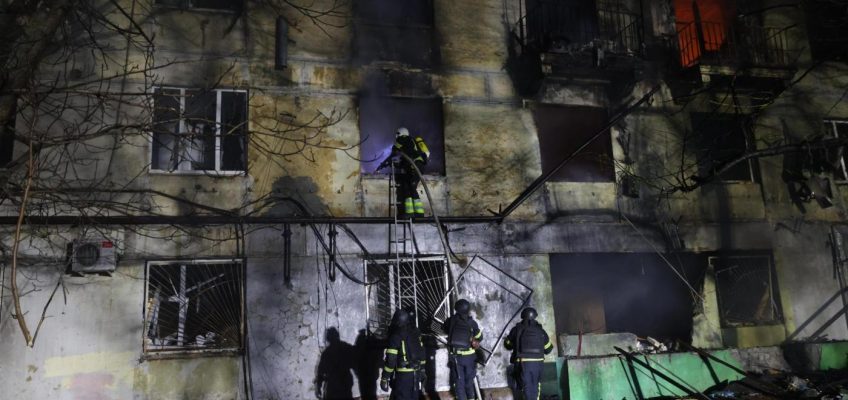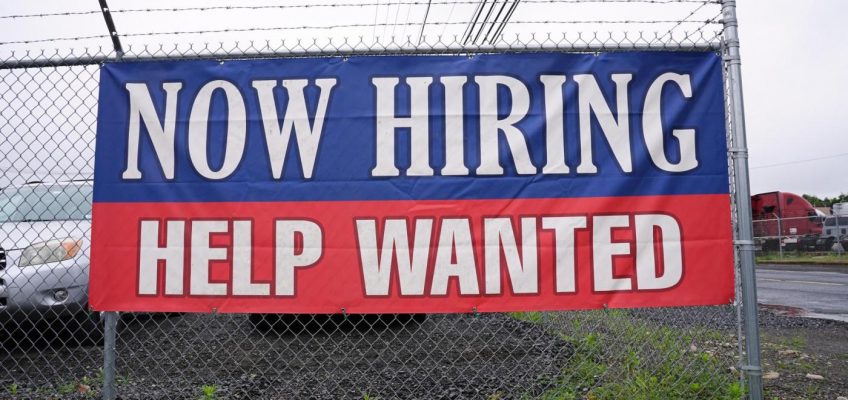By Stephen Kates, CFP, Bankrate.com
No risk, no return!
How many times have you heard that phrase or something similar?
Related Articles
Fewer Americans sought unemployment benefits last week as layoffs remain low
NYC judge: OpenAI must turn over communication with lawyers about deleted databases
Federal agency boosts size of most single-family loans the government can guarantee to $832,750
Campbell’s IT chief on leave after lawsuit claims he said company’s food is for ‘poor people’
New limits for a rent algorithm that prosecutors say let landlords drive up prices
It’s usually meant to encourage. A rallying cry for entrepreneurship, industry and capitalism, it also alludes to the inverse — that high risk translates into high return. But when it comes to investing, it isn’t quite so simple.
Risk vs. return in investing
While risk and potential return can be intimately related, it’s not a one-to-one relationship, which is why managing risk in an investment portfolio is one of — if not the most — critical aspects of investing.
It is entirely possible to take huge risks and have no reasonable expectation of an outsize return. This might be most closely associated with gambling. If all you’re doing is betting big and hoping for a payoff, the value of your risk is entirely dependent on the outcome. A positive result affirms the risk was worth it, even if the logic of the bet wasn’t sound, and vice versa.
Certain types of systemic risk are, by their nature, hard to anticipate and harder to avoid. The COVID-19 pandemic was one such example. If we could foresee these risks, plan for them and hedge them, they wouldn’t really be risks at all. In investing, we plan for and manage those risks through diversification and asset allocation.
The 3 types of risk
Prudent portfolio management should take into account a careful consideration of three key measures of risk.
Risk tolerance is your willingness to accept risk of loss and can be felt as an emotional measure of the amount of pain or stress you can withstand as an investor.
Risk exposure is the amount of risk your portfolio is actually exposed to based on the investments you hold.
Risk capacity is your financial ability to withstand both acute and long-lasting losses within your portfolio. Put another way, this is a measurement of your financial fragility.
Risk tolerance
It is hard to test one’s risk tolerance outside of a real-world situation that impacts your finances. Backtests and mock trading strategies can’t duplicate the real experience of gaining or losing money in the market. Inexperienced investors often overestimate their risk tolerance, resulting in panic if it all goes wrong. It can be better to learn those lessons early, when you have only a little money at stake, instead of later in life when you’re more likely to be managing larger sums.
Another complicating factor with measuring risk tolerance is the fact that one’s risk tolerance can evolve over time. This is normal but it does mean that your portfolio needs to adapt to your relative comfort with risk. Some investors may become more comfortable with risk as they become better investors, while others may become more conservative as they approach retirement or feel the weight of potential losses.
Similar to Ernest Hemingway’s famous quote about bankruptcy, anxiety over your risk of losses can happen slowly, and then all at once. Market volatility can arise swiftly and catch investors off guard. As seen in the graph above, investors enjoyed a relatively tame period between 2012 and 2020. In 2020, as the pandemic hit, volatility exploded, taking many investors by surprise.
If you only pay attention to your portfolio risk after witnessing substantial losses, it is too late to make the right changes. These kinds of surprises may leave you anxious and prone to emotional decision-making. Being forced to make financial decisions under duress is a recipe for regret.
Risk capacity
Awareness of your relative financial stability is key to judging your real risk capacity. Conducting a risk assessment and creating a financial plan is one of the most thorough ways to assess your financial weak points. Analyzing your cash flow, emergency fund, goal progression and income needs can shed light on how much wiggle room you might have if your finances or portfolio deteriorate by a certain amount.
For instance, if paying for your essential expenses, such as your groceries and mortgage, requires both spouses’ incomes, then you are more susceptible to financial hardship if one person loses their job than someone who can cover those expenses on a single income. Neither income arrangement is right or wrong; it simply informs how you should manage your risk exposure and cash safety net.
Risk exposure
Exposure cuts both ways. Ratcheting up the risk exposure through higher allocations to stocks, cryptocurrency or options can increase a portfolio’s potential returns — but also its potential losses. Over a given period of time, riskier investments don’t always translate risk into opportunity or behave in easy-to-understand ways.
An investor with multiple sources of income, a robust emergency fund and dry powder on the sidelines can withstand risk exposure better than an investor who lives paycheck to paycheck and has no safety net due to market or income losses.
Measuring risk should be done using various methods, including average rate of return, beta, Sharpe ratio, standard deviation and maximum drawdown expectations. A basic understanding of these measures is useful for the average investor, but vital for self-directed investors who are pushing the envelope with risk.
Statistical measures of risk
—Beta (β)
This evaluates the volatility of a single security or fund when compared to the market as a whole or its respective benchmark. A stock with a beta of 1 has the same volatility as the benchmark, while a beta of 2 is twice as volatile as the benchmark.
—Sharpe ratio
This formula is used to compare the historical return of an investment with its past volatility to determine whether excess returns are a result of risk or investment skill.
—Standard deviation
This measures the variation around the stock’s average return. A high standard deviation means an investment has high variability and may experience a wide range of possible returns over a given period of time.
—Maximum drawdown
This is the largest drop in value an investment may experience from its highest to lowest point over a given period of time, based on historical records. As the saying goes, past performance is no indication of future results, and no single investment can be predicted. A word of caution: Drawdown measurements are backward looking and do not predict how much an asset can fall in the future. The more diversified the asset, the more consistent this measurement may be. For instance, the historical performance of a single stock offers less useful information than the historical performance of an entire index.
Aligning the 3 measures of risk in your portfolio
However you decide to measure and manage risk, it is critical that you align your risk exposure to your tolerance and capacity for risk. It can be tempting and easy to let your risk exposure drift higher as the market rallies over multiple years, but when corrections or bear markets do come, you don’t want to be left watching your gains evaporate.
Ideally, all of these measures will align. However, this is usually rare.
There are many reasons that your risk tolerance might be more or less than your financial capacity for risk. Aligning your risk exposure properly should be a compromise between your risk tolerance and your risk capacity. The portfolio that suits you best should be dictated by the lesser of these two measures.
A key marker of a well-designed strategy should be the ability to remain invested through various market environments. A comprehensive financial plan will account for good and bad years. It is possible to be an above-average investor by simply achieving average returns for an above-average length of time.
While historical charts of indices such as the S&P 500 reveal down years, the majority of years not only have a positive return and some show double-digit percentage growth. Participating is the critical part, because if you can weather the bad years, you can enjoy the good ones.
©2025 Bankrate.com. Distributed by Tribune Content Agency, LLC.




